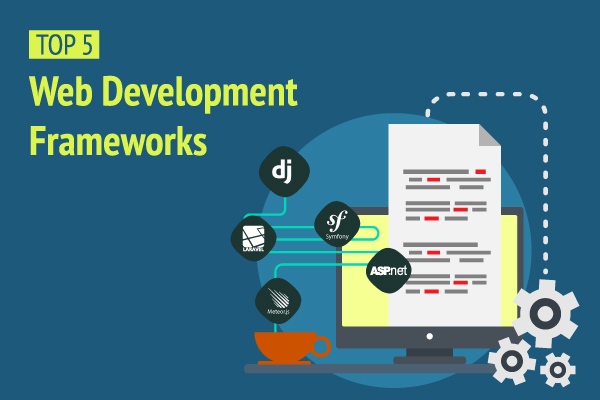Other recent blogs



Let's talk
Reach out, we'd love to hear from you!
Web applications are dynamic websites built using server-side programming and supported by browsers for rendering dynamic pages and forms. A stable web application development process is not just about the number of features or options a framework can provide, it is about ensuring that the functionalities are rolled out smoothly with the help of underlying developing tool or environment. Newer trends in web application development suggest that the two most important parameters that the companies must keep in mind while selecting a web development framework are efficient reuse of code and dynamic nature of controls and interfaces for delivering responsive behavior.
With advancement in technology and the promise of frameworks, the journey of web application development has come a long way. The recent years have seen the inclination of enterprises towards transforming legacy systems to seamless solutions by leveraging robust web development frameworks. According to a survey in 2017, the usage of web development frameworks has risen. With Python getting popularity along with PHP in the last five years and Javascript becoming the most commonly used programming language, the use of web development frameworks has skyrocketed.

The top five web development frameworks that are expected to generate buzz with its vigorous features in 2018 are:
Laravel
An open-source web application builder, Laravel follows the MVC architectural pattern. It is a PHP framework for extensive backend web application development with the largest community size of more than 40,000 to facilitate seamless connectivity with the back-end.
Laravel was initially introduced as an open-source PHP web framework in 2011. Powered by a modular packaging system, the framework has built-in utilities that help in accessing relational databases and application deployment and maintenance. The popularity of this framework has risen due to its incredible features—security, database migration, blade templating engine, intuitive interface etc.
Symfony
An open-source PHP web framework with an emphasis on less memory consumption and faster execution times, Symfony is apt for complex web applications with 300000 developers from more than 120 countries. It has won the reputation of the most mature and reliable PHP framework and is the number 1 choice for the enterprise web applications.
The framework is presented in the form of a ‘bundle’ that the developer can use repeatedly in one or more projects. It simplifies and speeds up the development process and offers a functional and expandable environment with native security features.
ASP.NET MVC Core
The ASP.NET MVC Core is an open-source web application framework that allows developers to build high-end enterprise applications based on three roles, namely, Model, View, and Controller (MVC). It was rolled out as a light-weight presentation framework by Microsoft, and integrated with the legendary ASP.NET features to provide the intuitive user experience.
If the developers are looking for a client-side framework, they must use ASP.NET MVC Core—which is a lighter weight and cleaner implementation of the Web API functionality, making it a better fit. ASP.NET MVC Core outperforms all the other frameworks on the server-side. It can handle over 1 million requests per second on the same hardware and application where NodeJS can manage only 175k requests/sec.
Django
Coded in Python language, Django is a popular choice that Python developers use in developing complex web-based applications. The open-source framework eases the burden of creating database-driven websites and leverages reusability and plug-in of components seamlessly, based on Model-View-Template (MVT) architecture. Django framework advocates the use of human-readable websites, which helps with search engines. SEO team can use the keywords in the URL to rank sites and bring more business.
Meteor.js
Yet another open-source JavaScript web framework, Meteor.js is the most popular Javascript framework for back-end development and front-end rendering. It enables rapid prototyping in fast-paced projects, along with cross-platform, fast code development across web and Android and iOS platforms. The framework eliminates the need for programmers to write any code for data modifications, as data changes are incorporated dynamically.
Meteor.js is flexible and requires less coding, enabling developers to develop a high-quality product. It is also easy to learn and quick to build, making it a new favorite for all developers. In recent years, Meteor.js has been boosted by huge startup investments and acquisition of cloud platform Galaxy for managing and operating its own applications.
Wrapping It Up!!
New frameworks, new design trends, and high user expectations are changing the scope of web application development today. With these changes, I am sure that no matter which technology or framework you and your company will work on in 2018, the exciting times are ahead.
Stay tuned.



